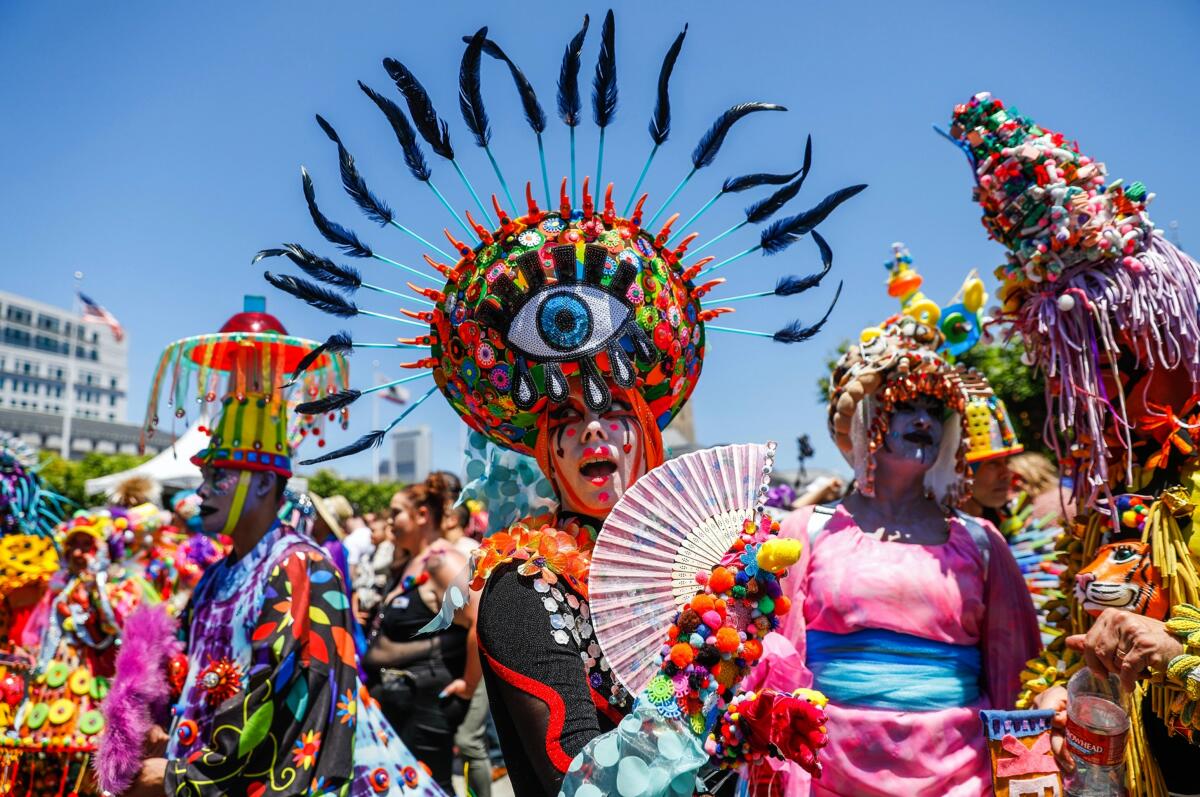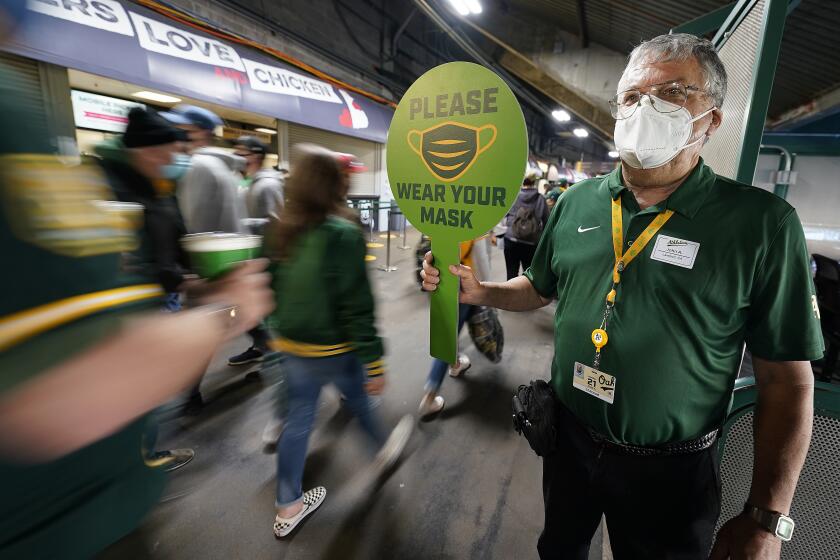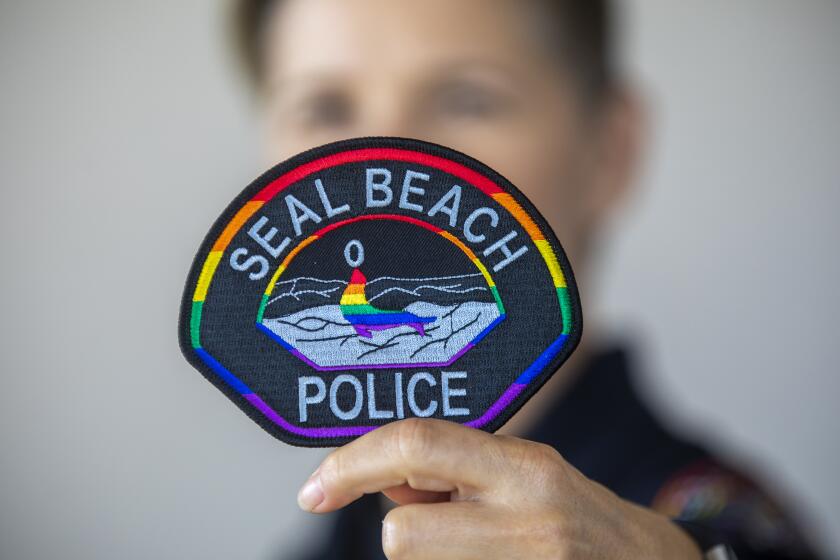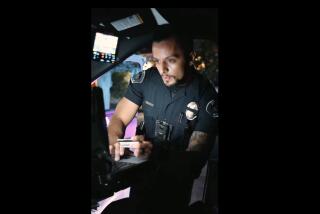San Francisco Pride Parade will allow some uniformed police to march, easing a ban

- Share via
A week after San Francisco first responders and the city’s mayor said they would skip this year’s Pride Parade because of organizers’ new ban on uniformed officers taking part, Mayor London Breed’s office said Thursday that a compromise will allow a small group of police officers to march in uniform.
Members of the Officers Pride Alliance, comprising LGBTQ members of the San Francisco Police Department, along with firefighters and sheriff’s deputies, had said they would boycott the June 26 parade over the decision not to allow officers to wear their uniforms, which would have taken effect for the first time this year.
On May 23, Breed said she too would skip the parade to support law enforcement and first responders who she said were not being valued for their work.
The policy stemmed from the 2019 parade, when anti-corporate protesters blocked the route and were arrested by police, who faced accusations by activists of excessive force. Conversations about the incident became tense in 2020 after the murder of George Floyd by a Minneapolis police officer, and the parade organizers decided that to make community members feel safe, uniformed police would not be allowed to march in the 2021 parade. That parade was canceled because of COVID-19.
Alameda County has reinstated an indoor masking rule, the first time a California county has issued a mask mandate since the winter Omicron surge faded.
The compromise announced Thursday by Breed’s office will allow a small group of uniformed officers to participate, while other officers will be allowed to march in casual, Police Department-approved Pride apparel. Command staff may wear uniforms along with a limited number of on-duty officers, Breed said at an event kicking off Pride Month at City Hall.
Breed said various law enforcement agencies and first responders came together with parade organizers to reach a compromise that “is a symbol of love bringing us together.”
“We are family again,” Breed said.
Officer Kathryn Winters of the SFPD Officers Pride Alliance said law enforcement officers were grateful for the compromise agreement.
The Seal Beach department’s LGBTQ pride patch is the first of its kind for police in Orange County. But police have a long history of violence and oppression against the LGBTQ community.
“It’s the result of a productive two years of conversation,” Winters said by phone. “I think it’s important that we were able to come together and come to an agreement that allows all LGBTQ San Franciscans to march.”
San Francisco Pride, the organizing board behind the parade, and the Officers Pride Alliance celebrated the decision in a joint statement.
“Pride grew out of conflicts between LGBTQ communities and police at Compton’s Cafeteria and Stonewall Inn. Ever since then, we have attempted to bridge that divide,” the groups said. “That is why we are grateful to have reached a compromise solution today. It shows everyone is working in the spirit of Pride to come together. We have agreed that all first responders will march together in one contingent.”
The Pride Parade organizing board, the Officers Pride Alliance, the San Francisco Human Rights Commission and San Francisco Supervisor Matt Dorsey will form a working group that will meet regularly over the next year with community groups on how to better strengthen and support the LGBTQ community, according to Breed’s office.
More to Read
Sign up for Essential California
The most important California stories and recommendations in your inbox every morning.
You may occasionally receive promotional content from the Los Angeles Times.













